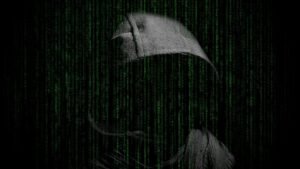Reviews
User Score
Rate This
Descriptions:
Securing SQL Server DBAs: Guardians of the Digital Vault
In the ever-evolving digital landscape, data reigns supreme, and safeguarding it becomes a paramount concern. For SQL Server DBAs, the responsibility of protecting their databases is akin to guarding a digital vault. This article delves into the crucial aspects of SQL Server DBA security, providing essential tips and best practices for defending the sanctity of your data.
1. Understanding the SQL Server DBAs Threat Landscape
The first step towards securing your SQL Server environment is comprehending the potential threats lurking in the digital shadows. Attackers employ a diverse arsenal of techniques, including:
- SQL injection: This involves injecting malicious code into SQL queries, potentially leading to data theft or unauthorized access.
- Brute-force attacks: Hackers attempt to guess login credentials through automated tools, seeking to gain access to the database.
- Zero-day exploits: These are vulnerabilities unknown to the software vendor, making them particularly dangerous until patches are released.
2. Implementing Security Best Practices
A robust security posture requires the implementation of best practices across various aspects:
- Strong authentication: Enforce strong password policies, including minimum length, complexity requirements, and regular password changes. Additionally, enable two-factor authentication for an added layer of protection.
- Least privilege: Grant users access to the minimum database resources necessary for their specific tasks. This principle minimizes the potential damage if a user account is compromised.
- Regular updates: Maintain your SQL Server software and applications up-to-date with the latest security patches. This ensures timely mitigation of vulnerabilities that attackers could exploit.
- Database encryption: Encrypt sensitive data at rest and in transit to prevent unauthorized access even if attackers breach the server.
- Monitoring and logging: Implement robust monitoring and logging mechanisms to track user activity and identify suspicious behavior. This allows for prompt detection and response to potential security incidents.
3. Preparing for Security Interviews
If you’re a SQL Server DBA aiming to elevate your career, mastering security concepts is crucial. Be prepared to answer common security interview questions such as:
- How do you implement data encryption in SQL Server?
- What are the different types of SQL injection attacks, and how do you prevent them?
- Describe your experience in managing user access and permissions in a SQL Server environment.
- How do you stay updated on the latest SQL Server security threats and vulnerabilities?
- What steps do you take to ensure the security of your backups and disaster recovery plan?
By demonstrating a thorough understanding of SQL Server security best practices and possessing the ability to articulate them clearly, you’ll stand out from the competition and make a strong impression on potential employers.
Securing Your Digital Fortress
Securing your SQL Server environment requires a proactive and multi-faceted approach. By incorporating the best practices mentioned above and actively educating yourself on emerging security threats, you can transform your role from a mere database administrator to a vigilant defender of your organization’s most valuable asset – its data. Remember, securing your digital vault is not just a responsibility, but a commitment to ensuring the integrity and confidentiality of information that drives your business forward.








